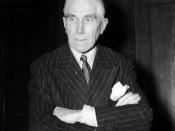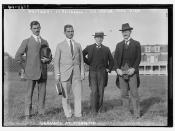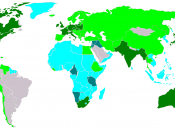The trials at Nuremberg were a demonstration of the actions taken against individuals responsible for breaking international law. This essay will examine the validity of those trials as an objective means of prosecuting criminals of war. The trials set a precedence that not only could the aggressor of war be punished but also separate individuals responsible for such actions. Unlike in the First World War when an entire country could be reprimanded, the charges were laid on individual people accused of crimes. The Nazi's horrible appalling treatment of the Jews was inhumane and included such crimes as being burnt alive, hanged and tortured. Some of the German leaders accused were Ley, Hess, Goering, Fritzsche, Von Ribbentrop, Funk, Schacht, Jodl, Von Papen and Himmler. These leaders were accused of: "The Common Plan or Conspiracy which included breaking treaties, planning wars of aggression, the persecution and murder of helpless people; Crimes against Peace; War Crimes; Crimes against Humanity."
The outcome of the Nuremberg trials set an example of the consequences should anyone commit the afore mentioned crimes.
In a time of war those who posses authority over the people of a country must also abide by certain laws. Not all crimes committed are petty crimes, people who possess the power to destroy any person's home must also have limitations to the evil they can do. There must be another method to reprimand those who have the power to manipulate people such as government officials, military personnel, and citizens. Nobody should have the freedom to do evil unto innocent people. The question of fairness of the victors judging the vanquished may be raised, an alternative would be to let those defeated judge themselves. "After the First World War we learned the futility of the latter course."
Barring the imprisonment of these leaders does...


